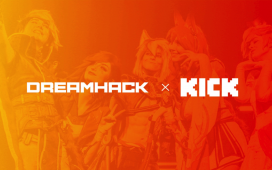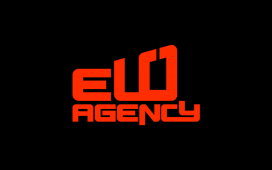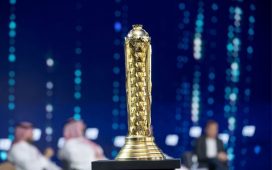Mentioned in this article
League/Tournament Brands:
In 1998, France celebrated its first FIFA World Cup victory, on home soil no less. Almost twenty years later, Paris played host to an entirely different international sporting event: the League of Legends World Championships. French-born and educated Nicolo Laurent was present for both competitions, a shared set of experiences that he described as both emotional and unbelievable.
This disbelief doesn’t belong to Riot Games’ CEO alone, however. With thousands of arena attendees and millions more watching at home, ‘Worlds’ as it exists today goes far beyond what early alumni of the company could have imagined. “We were not sure esports had a future, initially,” Laurent told The Esports Observer.
South Korea was the first region to develop a professional scene around League of Legends, but the company couldn’t tell if the country’s strong social and commercial acceptance of esports was an outlier or a sign of things to come.
As if to test this uncertainty, the first-ever Worlds were held at DreamHack Summer 2011. This tournament didn’t include any teams from the far east, yet the viewership and interest exceeded expectations. “It gave us the courage to say ‘you know what, it’s not a Korean thing,’” said Laurent. “Now we have 13 professional leagues, three major international events, and probably more in the future.”
Next year will mark the 10th year of League of Legends esports. Over time, it’s grown into a core business pillar for Riot, with several leagues such as South Korea and China already breaking even, if not profitable.
“You cannot see esports as marketing,” said Laurent. “We view this as a business. We want to make sure everybody has something to win.”
One of the most dramatic changes over the years, in terms of how Riot positions its professional leagues, is changing from an open ecosystem to a “partnership model,” where teams pay upwards of $13M USD (depending on region) to secure a league spot while taking in shared revenue.
It’s still a step removed from the traditional sports model, however. Esports teams do not own any equity in the leagues they compete in—a standard that Laurent is not religiously attached to. “It’s not impossible that one day we explore that model, where teams own a portion of the league,” he said.
“The problem, though, is you only want to do this if you have plans for the league to monetize on its own, or potentially IPO. Otherwise, you’re creating a bad incentive structure.”
Having led League of Legends’ expansion worldwide, Nicolo Laurent’s key task today is to transform Riot Games into a multi-games publisher. Over the next few years, the number of games under the company’s trademarked fist will shoot up to seven, and its genres (including tactical shooters and fighting games) may be more appealing to markets still outside of Riot’s grasp.
“We’ve just announced that we’re going to gradually bring all of our games and products into the Middle East and North Africa, and start to offer Arabic services,” said Laurent. “India is something we’re still looking into. It’s just a question of time and when, but not a question of if.”














